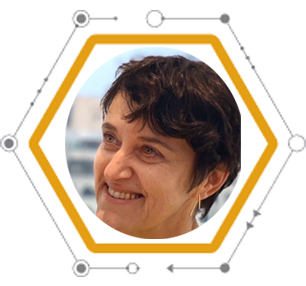
Hilde Van Esch, MD, PhD
KU Leuven
Basic Research Award: $145,000
Brain development in a humanized mouse model of Rett syndrome and Rett-related disorders
While much progress in Rett syndrome science has been made thanks to animal models, the extent to which findings made in animals such as mice are translatable to humans has limits. Improved mouse models may be able to improve research translatability. Recently, researchers successfully transplanted human neurons into the brains of mice, creating a mouse model that more closely resembles the human brain. The Van Esch lab will use this model to study how the dosage of the MeCP2 protein, which is too low in Rett syndrome and too high in MECP2 Duplication Syndrome (MDS), affects brain development. The goal of this research is to gain new insight into the role of MeCP2 in the process of human brain development in these disorders. In the future, these insights and the model used to generate them may be used to develop new treatments for Rett syndrome and/or MDS.